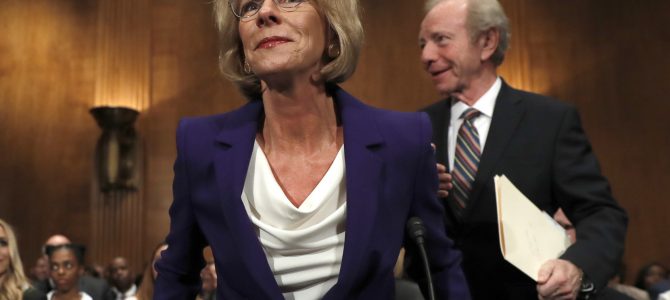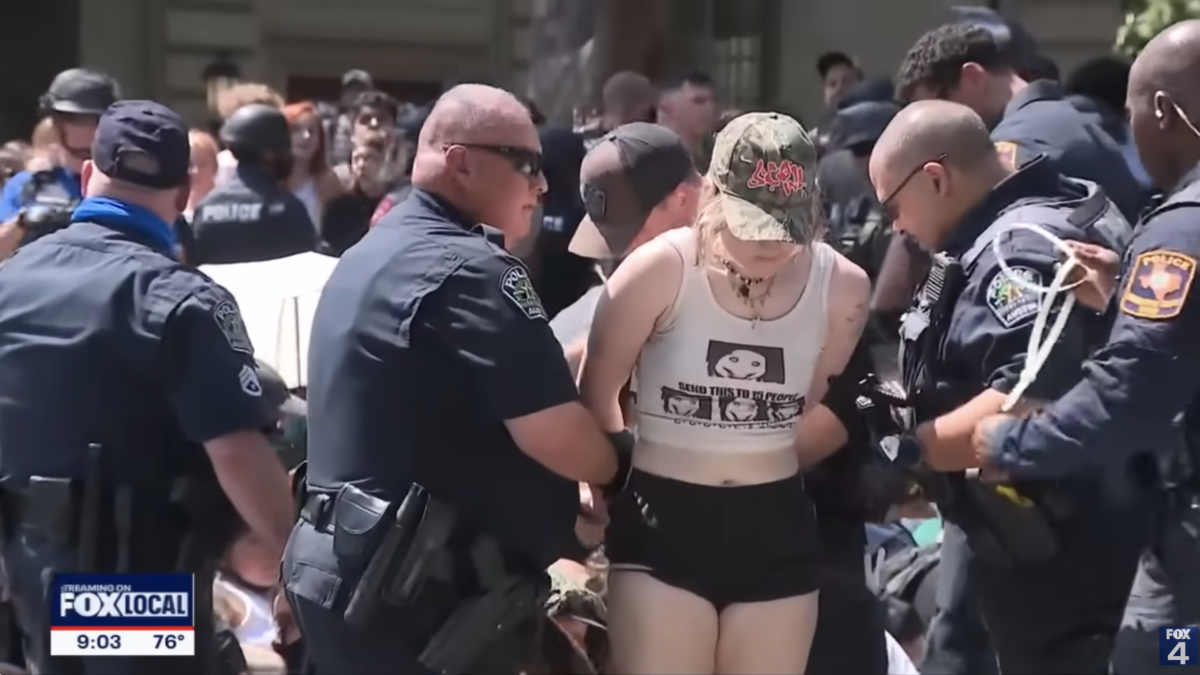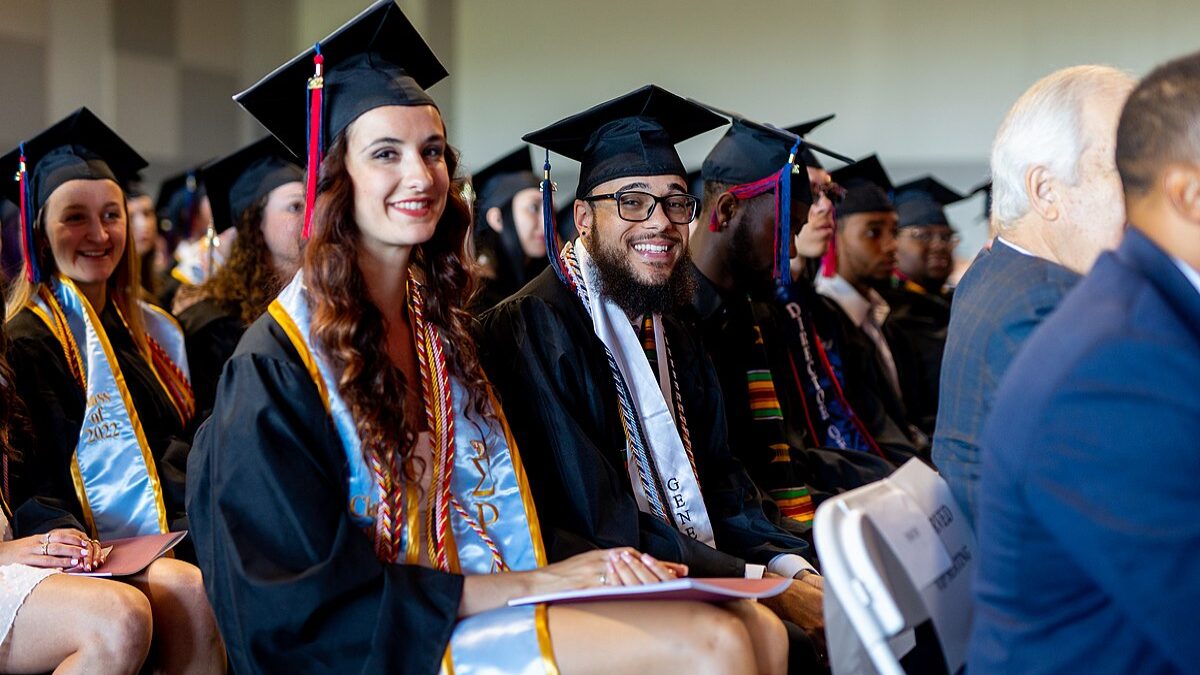
There’s something perverse about an ideology that views the disposing of a child in the third trimester of pregnancy as an indisputable right but the desire of parents to choose a school for their kids as “zealotry.” Watching Donald Trump’s pick for education secretary, Betsy DeVos, answer an array of frivolous questions was just another reminder of this warped worldview.
Many liberals, for instance, tell us that racism is one of the most pressing problems in America. And yet few things have hurt African Americans more over the past 40 years than the inner-city public school system. If President Obama is correct, and educational attainment is the key to breaking out of a lower economic strata, then no institution is driving inequality quite as effectively as public schools.
Actually, teachers unions are the only organizations in America that openly support segregated schools. In districts across the country — even ones in cities with some form of limited movement for kids — poor parents, most typically black or Hispanic, are forced to enroll their kids in underperforming schools when there are good ones nearby, sometimes just blocks away.
The National Education Association spent $23 million last cycle alone working to elect politicians to keep low-income Americans right where they are. Public service unions use tax dollars to fund politicians who then turn around and vote for more funding. The worse the schools perform, the more money they demand. In the real world we call this racketeering.
Yet according to Randi Weingarten, president of the American Federation of Teachers, it is people like DeVos who are “a grave threat” to the public schools “that made America great.”
Well, for starters, studies consistently show that minority groups in America’s largest cities are lagging in proficiency in reading and math. Most of them are at the bottom 5 percent of schools in their own state. There is only so much an education secretary can accomplish, but being accused of being a “grave threat” to this system is a magnificent endorsement.
And what were Democrats on the Senate Health, Education, Labor, and Pensions Committee most concerned with? Preserving the status quo. Sen. Elizabeth Warren forced DeVos to admit that she has never led an organization quite like the Education Department (with its nearly $70 billion budget, who has?). For some reason, Warren also made DeVos, a billionaire, admit that she’d never filled out financial aid forms. The Daily Caller News Foundation found that six of the 10 Democrats on the committee had attended private or parochial schools, or have children and grandchildren who do. So what?
Sen. Patty Murray, who has absolutely no understanding or regard for the constitutional limitation on the education department, pushed DeVos to promise that she would not personally defund public schools. Sen. Chris Murphy of Connecticut, a tireless adversary of the first five amendments of the Constitution (at least), asked DeVos if she thought firearms had any place in or around schools. “I think that’s best left to locales and states to decide,” she replied, before offering a specific concern of a local rural district that Sen. Mike Enzi had moments ago mentioned. Cue: mocking left punditry.
In case you were unaware, Democrats on the committee stressed that DeVos was a Republican appointed by a Republican president who had given money to Republican organizations. They further pointed out that DeVos was a Christian who had given money to Christian organizations (often referred to as “antigay groups”) that didn’t meet with their moral approval.
Mostly though, the liberals on the committee attacked DeVos because she has a history of contributing her own money to help private and Christian schools expand their reach. She also supported school vouchers proponents and public charter schools that open doors to poor kids. Those dollars have likely done more to help minority students than all the committee members’ efforts combined.
As many Americans surely know, rich and middle-class Americans already have school choice. In most places, the whiter the neighborhood the better the school system, and the better the school system the higher the prices of homes, making it impossible for those who aren’t wealthy to escape substandard schools (rural school also often suffer.) This is the status quo Warren, Murphy, and Murray hope to preserve.
Yes, school reform is complicated and challenges vary from place to place. Many have shown improvement. But teachers unions and their allies opposed magnets, charters, home schooling, religious schooling, and virtual schools long before data about the effectiveness of these choices was in, and now long after quality research is indicating their improvement on the union-preferred system.
You can visit heavily Hispanic areas in Denver and watch mothers cry when their kids’ numbers don’t come up in a charter-school lottery. Or you can listen to technocrats in editorial board meetings, whose kids live in prosperous districts or attend private schools, telling you why too many of those parents have a choice.
By the parameters we often judge these sort of things, public schools are racist institutions — even if that’s unintentional. They have an even more destructive effect on communities than all the dumb words and racist (real and imagined) comments that upset the public on a regular basis. It’s not surprising that poll after poll shows minority parents support educational choice. Unfortunately, partisanship allows Democrats to take voters for granted and ignore the issue.








